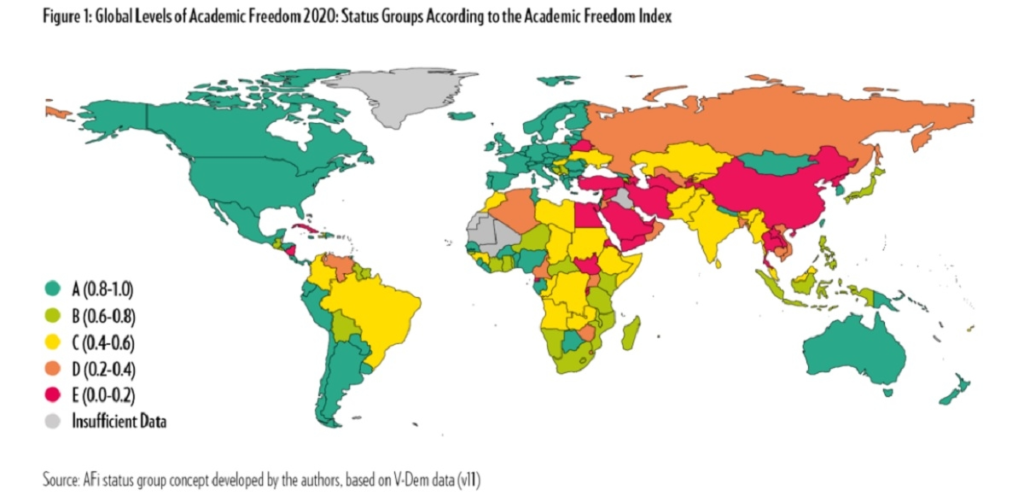
Academic freedom, the ability of scholars to research, teach, and express their opinions without fear of retribution, is a fundamental component of higher education. However, academic freedom is under threat in many parts of the world, with scholars facing censorship, harassment, and even imprisonment for their work. The Academic Freedom Index (AFI) Report, released annually by a team of international researchers, assesses global trends and challenges to academic freedom.
The AFI Report measures academic freedom on a scale of 0-100, with higher scores indicating greater freedom. The index is based on four main components: freedom to research and teach, institutional autonomy, freedom of academic exchange and dissemination, and constitutional protection of academic freedom.
According to the 2022 AFI Report, academic freedom has declined worldwide, with the global score dropping from 64.5 in 2020 to 62.2 in 2021. The report highlights several key trends and challenges to academic freedom, including:
- Government interference: In many countries, governments are increasingly interfering with academic freedom by controlling funding, censoring research, and restricting the mobility of scholars.
- Suppression of dissent: Scholars who speak out against government policies or social norms are facing increasing repression, including censorship, harassment, and imprisonment.
- Threats to institutional autonomy: Universities are facing threats to their autonomy as governments seek to control academic institutions and limit their independence.
- Technological challenges: New technologies are posing challenges to academic freedom, with online censorship and surveillance posing threats to free expression and privacy.
The report also highlights several positive trends, including increased awareness of academic freedom as a human right and the emergence of new initiatives to protect and promote academic freedom.
The AFI Report provides valuable insights for policymakers, scholars, and human rights advocates, helping them to identify trends and challenges in academic freedom and develop strategies to protect it. The report is also an important tool for universities and academic institutions, helping them to identify risks and opportunities for academic freedom and develop policies and practices to protect it.
